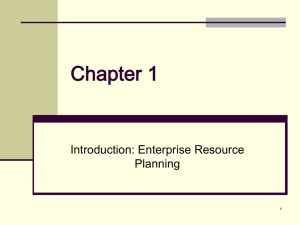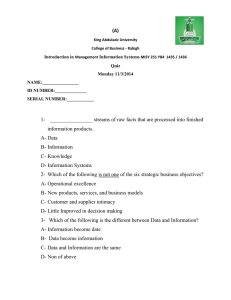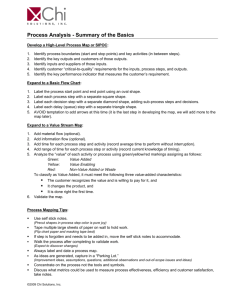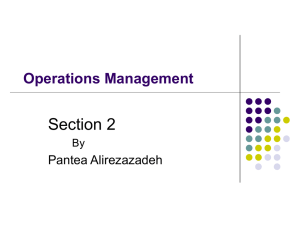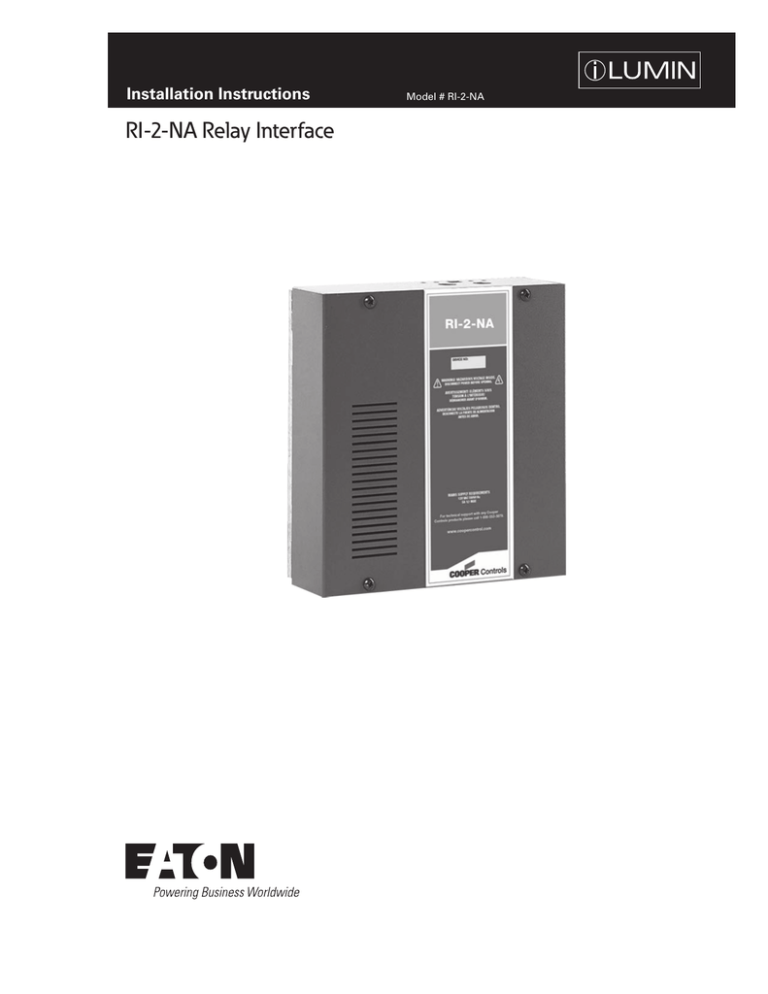
Installation Instructions
RI-2-NA Relay Interface
Model # RI-2-NA
INS #
Contents
Introduction3
Input and Output Wiring
Dimensions. . . . . . . . . . . . . . . . . . . . . . . . . . . . . . . . . . . . . . 3
Weight . . . . . . . . . . . . . . . . . . . . . . . . . . . . . . . . . . . . . . . . 3
Specification . . . . . . . . . . . . . . . . . . . . . . . . . . . . . . . . . . . . . 3
General . . . . . . . . . . . . . . . . . . . . . . . . . . . . . . . . . . . . . . . 3
8 Relay Outputs. . . . . . . . . . . . . . . . . . . . . . . . . . . . . . . . . 3
8 Analog / digital inputs. . . . . . . . . . . . . . . . . . . . . . . . . . . 3
8 Digital Outputs . . . . . . . . . . . . . . . . . . . . . . . . . . . . . . . . 4
Support for multiple control protocols. . . . . . . . . . . . . . . . 4
2 Alarm switch inputs. . . . . . . . . . . . . . . . . . . . . . . . . . . . .4
Relay Outputs. . . . . . . . . . . . . . . . . . . . . . . . . . . . . . . . . . . . 5
Analog/Digital Inputs. . . . . . . . . . . . . . . . . . . . . . . . . . . . . . . 5
Digital Outputs . . . . . . . . . . . . . . . . . . . . . . . . . . . . . . . . . . . 6
Mounting4
Location and spacing. . . . . . . . . . . . . . . . . . . . . . . . . . . . . . . 4
Ambient atmosphere requirements . . . . . . . . . . . . . . . . . . . 4
Mounting Holes. . . . . . . . . . . . . . . . . . . . . . . . . . . . . . . . . . . 4
Supply Wiring
4
5
Control Wiring
6
iCAN Network. . . . . . . . . . . . . . . . . . . . . . . . . . . . . . . . . . . .
RS485 Control. . . . . . . . . . . . . . . . . . . . . . . . . . . . . . . . . . . .
RS485 Termination. . . . . . . . . . . . . . . . . . . . . . . . . . . . . . . . .
Alarm Inputs . . . . . . . . . . . . . . . . . . . . . . . . . . . . . . . . . . . . .
RJ12 Connector. . . . . . . . . . . . . . . . . . . . . . . . . . . . . . . . . . .
6
7
7
8
8
Operation8
Commissioning. . . . . . . . . . . . . . . . . . . . . . . . . . . . . . . . . . . 8
Diagnostics . . . . . . . . . . . . . . . . . . . . . . . . . . . . . . . . . . . . . . 8
WARRANTIES AND LIMITATION OF LIABILITY
9
Connecting the Supply . . . . . . . . . . . . . . . . . . . . . . . . . . . . . 4
Wire Gauge for Supply Terminals . . . . . . . . . . . . . . . . . . . . . 5
WARNING
WARNING HAZARDOUS VOLTAGES, DISCONNECT FROM SUPPLY BEFORE REMOVING COVERS
NO USER SERVICEABLE PARTS INSIDE SERVICE BY QUALIFIED PERSONNEL ONLY
Safety Instructions
Important Safeguards
Read and Follow All Safety Instructions
The Relay Interface is built and tested to strict safety regulations. By following the steps listed below and elsewhere within
this guide, you can ensure safe installation and operation of these controller units.
●●
The Relay Interface must be installed only by a qualified electrician.
●●
The installation must comply with the appropriate electrical codes and regulations in force in your area.
●●
The Relay Interface is designed for indoor installation and use only. The unit can, however, be used to control appropriately
certified exterior fixtures.
●●
Ensure that all wiring used conforms fully to local specifications and is sufficiently rated for the installation.
●●
All new wiring must be fully verified before applying power.
●●
●●
●●
The high voltage supply should be fed to the Relay Interface via an external isolation breaker with sufficient capacity for
the planned installation.
Ensure that the supply is fully isolated at an external breaker before removing the chassis covers. Test that power has been
removed before starting to handle conductors.
Ensure that high voltage and low voltage wiring remains separate..
Save These Instructions
2
RI-2-NA Relay Interfacewww.eaton.com
Introduction
Introduction
Specification
This unit provides a very versatile interface between an
iCANnet™ system and other control systems. Fitting in
the smallest of the iCAN™ system controller boxes this
compact unit can be mounted virtually anywhere. It has
eight inputs, which may be configured to be either digital
or analog. The unit also has eight volt-free mains rated
low power relays. These allow a wide range of external
equipment to be controlled. All inputs and outputs have
configurable functionality. In addition to the control inputs/
outputs there are eight digital outputs which can be used for
LED indication of switch activity or digital control channels
in their own right. As well as the essential connections to
the iCANnet network, there are also terminals provided for
connection to RS485 systems.
General
This interface allows the iCANnet™ network to control
other systems and other systems to communicate with
the iCANnet™ network. The unit is fully configurable and
may be programmed to perform many functions, including
curtain or blind control, the control of screens, audio-visual
and other presentation equipment or controlling contactors
for heavier power applications. With the control inputs set
to analog, any 0-10V source can be programmed to control
system functions. The unit may also be configured such
that system sequences could be activated by a motion
detector or any other device on the iCANnet™ network.
●●
●●
●●
●●
Unit requires 120 VAC 50/60 Hz 1A single phase supply
RJ12 iCANnet port for local connection of iCAN system
tools
Service switches and indicators for diagnostic operations
Ambient temperature range 32°F to 104°F
(0°C to 40°C)
●●
Humidity 0 to 95% non-condensing
●●
EEPROM configuration and sequence memory
●●
Field upgradable FLASH program memory
●●
Configurable start up action on power up condition
8 Relay Outputs
●●
●●
●●
Dimensions
●●
●●
●●
Can be wired to provide low voltage or line voltage
outputs.
Do not mix low voltage and line voltage on relay output
terminals
Normally open and Normally closed terminals available for
each relay
Low voltage volt free outputs
Line voltage rated at 3 Amps AC for general use,
resistive, incandescent lamps (tungsten), electric
discharge (ballast) loads and ¼ HP AC motor loads for use
at 120 VAC.
LED diagnostic indicators for relay status
8 Analog / digital inputs
●●
Individually programmable as analog or digital inputs
●●
Analog input mode:
Weight
●●
Packed: 5.7 lbs. (2.6 kg)
●●
Unpacked: 5.3 lbs. (2.4 kg)
1. Suitable for use with rotary and linear variable
resistors
2. Reads input voltages from 0 – 10 VDC
3. Inputs protected for use up to 12 VDC
●●
Digital input mode works with:
1. Switch closure from the IN to Common
●●
●●
●●
For use with both momentary and maintained
inputs
Minimum momentary input pulse duration
20 msec
Switch will see up to 60uA when closed
RI-2-NA Relay Interfacewww.eaton.com
3
Mounting
2. Open collector NPN active low circuit
●●
On-state voltage ≤ 500mV and capable of sinking
60uA
●●
Collector-emitter leakage current ≤ 10 uA
●●
Collector-emitter voltage ≥ supply voltage
3. Actively driven circuit
●●
●●
●●
Active low voltage ≤ 500mV and
capable of sinking 60uA
Active high voltage ≥ supply – 1 volt
All analog / digital inputs wire with 2 part
connectors with screw terminals. Wire sizes 12
AWG (4mm2) to 24 AWG (0.25mm2).
8 Digital Outputs
●●
LED indication of switched output status
●●
Configurable as digital control channels
●●
●●
●●
The unit has ventilation slots on its sides to allow
convection cooling and under no circumstances should
these be blocked.
Allow 2” (50mm) above and below the unit if trunking with
a depth greater than 2” (50mm) is used.
Ambient atmosphere requirements
●●
Temperature: 32°F to 104°F (0°C to +40°C)
●●
Humidity: 0 to 95%, non-condensing
Mounting Holes
The unit is provided with four 1/4in (6mm) diameter fixing
holes for wall mounting.
The mounting holes can be accessed by undoing the four
screws on the front cover and removing it.
Outputs will drive a single LED, or two LEDs in series
with up to 20 mA of current; exact current will depend
upon the forward voltage drop of the LED used.
Outputs are actively driven high and low to TTL voltages
with an internal series impedance of 220 ohms.
All digital outputs wire with 2 part connectors with
screw terminals. Wire sizes 12 AWG (4mm2) to 24 AWG
(0.25mm2).
Support for multiple control protocols
●●
2 sets of terminals for the iCANnet network
●●
RS485 connection to third party devices
2 Alarm switch inputs
●●
For integration with emergency control devices and
building management systems
●●
For DC use only
●●
Maximum open circuit voltage, 5V
Mounting
Connecting the Supply
This unit requires a nominal 120V single phase supply (Hot,
Neutral, and Ground) with 1A capability.
Location and spacing
The relay interface should be installed in a dry ventilated
location, where ambient conditions are maintained within
the requirements of the unit.
4
Supply Wiring
Keep the supply wiring segregated from the relay connector
cabling.
Ensure all supply connections are fully tightened.
A knockout, suitable for a 3/4” (19mm) cable gland, is
provided for the supply entry point.
RI-2-NA Relay Interfacewww.eaton.com
Input and Output Wiring
Wire Gauge for Supply Terminals
discharge (ballast) loads and ¼ HP AC motor loads for use
at 120 and 240 VAC.
Terminals suitable for wire sizes from 22AWG (0.34mm2) to
12AWG (4mm2).
●●
●●
Do not mix low voltage and line voltage on relay output
terminals
LED diagnostic indicators for relay status
Connections are made via two 12-way 2 part connectors
with screw terminals.
Wire Gauge for Relay Outputs: terminals suitable for wire
sizes from 24AWG (0.25mm2) to 12AWG (4mm2).
The unit is supplied with knockouts, suitable for 3/4”
(19mm) cable glands, for relay output wiring. An appropriate
cable gland should be fitted to each knockout hole to protect
the cabling from damage.
Ground
Analog/Digital Inputs
Hot
The unit has eight inputs which can be configured via
software for either digital or analog input signals.
●●
Individually programmable to be analog or switch inputs
●●
Analog inputs accept 0 – 10VDC signals
NNote: Wire distance from the device to the RI-2-NA should
not exceed 32 feet (10m).
Connections are made via a 9-way two part connector with
screw terminals.
The unit is supplied with knockouts, suitable for 3/4”
(19mm) cable glands, for analog/digital input cabling. An
appropriate cable gland should be fitted to the knockout
hole to protect the cabling from damage.
Wire Gauge for inputs: terminals suitable for wire sizes
from 24AWG (0.25mm2) to 12AWG (4mm2).
Supply Wiring Connections
Input and Output Wiring
Relay Outputs
There are 8 Relay Outputs that can be wired to provide low
voltage or line voltage outputs.
●●
●●
●●
Normally open and Normally closed terminals available for
each relay
Low voltage volt free outputs
Line voltage rated at 3 Amps AC for general use,
resistive, incandescent lamps (tungsten), electric
RI-2-NA Relay Interfacewww.eaton.com
5
Control Wiring
Control Wiring
Digital Outputs
The unit has eight digital outputs. These can be configured
as:
●●
LED drive indicators of switched output status
●●
Digital control channels
Connections are made via the 9-way two part connector
with screw terminals.
iCAN Network
Two removable 5 way connector blocks are provided for the
connection of iCAN network cables. The iCAN terminals on
the board are connected in parallel.
Wire Gauge for Digital outputs: ‘terminals suitable for wire
sizes from 24AWG (0.25mm2) to 12AWG (4mm2).
The unit is supplied with knockouts, suitable for 3/4”
(19mm) cable glands, for digital output wiring. An
appropriate cable gland should be fitted to the knockout
hole to protect the cabling from damage.
RELAY CONNECTIONS
Common
Normally
Closed Normally
Open
RELAY OUTPUTS
RL 1
DIGITAL
OUTPUTS
ANALOG /
DIGITAL
INPUTS
RL 2
RL 3
RL 4
RL 5
RL 6
RL 7
RL 8
Common
OP 1
OP 2
OP 3
OP 4
OP 5
OP 6
OP 7
OP 8
Common
IN 1
IN 2
IN 3
IN 4
IN 5
IN 6
IN 7
IN 8
0V (Black)
CAN-L (Blue)
DRAIN (Gray)
CAN-H (White)
12V (Red)
iCAN Connectors
Input/Output Wiring Connections
●●
Cable type: Cooper LC or Belden 1502R or 1502P
●●
Maximum cable length: 1000 ft. (305 m) *
●●
Devices per segment: 100 (without bridge or repeater)
* A maximum segment distance of 3200 ft. (1000 m) is possible if an
additional 12V power supply is used.
6
RI-2-NA Relay Interfacewww.eaton.com
Control Wiring
iCAN devices are ‘daisy-chained’ on the network. Spurs
from the Network are not permitted and will result in
communications problems. Devices on an iCAN network
can be wired in any order. Termination is required at both
ends of the network.
iCAN
Device
iCAN
Device
RS485 Termination
RS485 and DMX networks are daisy-chained. Devices at
either end of the network must be terminated. If the RI-2NA is at the end of the network, ensure the appropriate
jumper is fitted in the termination ON position, as in the
diagram:
RI-2-NA
Termination ON
T - Indicates where a termination is required.
The RI-2-NA has in-built network termination. If the RI-2-NA
is at the end of the network, ensure the CAN TERM jumper
is fitted in the Termination On position.
RS485
Terminator
Termination OFF
RS485 Termination
Termination OFF
Termination ON
CAN Terminator
RS485 Control
An RS485 port is provided for connection to third party
devices or PC integration.
The communications settings are configurable from
iCANsoft.
The default settings are:
●●
●●
Baud Rate: 9600 Baud
Data Structure: No parity, 8 data bits, 1 start bit, 1 stop
bit.
A removable 4 way connector block is provided for the
connection of RS485.
RI-2-NA Relay Interfacewww.eaton.com
7
Operation
Alarm Inputs
An iCANnet fault (including non-connection to the network)
will be indicated by a permanently lit red LED.
The default action for the alarm inputs is for all outputs
to switch on. These are designed for integration with
emergency control devices and building management
systems, using volt-free switch inputs.
If iCANnet cables are connected after the unit has been
energised, it should be noted that cables will be carrying
low voltage signals and misconnection of these cables
could result in damage to devices on the network.
The default action for the alarm inputs is for every channel
of the source controller to turn on. They will then remain in
this state, regardless of any other command received, until
the inputs are opened again.
Diagnostics
ALARM 1
ALARM 2
The relay interface has two service switches with green &
red LEDs located at the base of the unit.
The service switches are used for:
●●
Sending a message to identify the device on the network
●●
Entering Diagnostic Mode
In diagnostic mode, the outputs can be tested by switching
them all on and off (override mode) or by switching them
sequentially (sequential test mode).
0V
RS485
It is possible to enter Diagnostic Mode even if the unit
indicates an iCAN fault.
RS485+
RS485-
Connections for RS485 and Alarm Inputs
RJ12 Connector
An RJ12 connector is also fitted, for factory &
commissioning use.
It is not recommended to connect to this port for normal
operation.
Operation
Commissioning
The relay interface can be energised without network cables
being connected.
A flashing green LED indicates that the unit is powered and
operating normally.
When first energised after installation, the unit will switch all
relay outputs on. This allows verification of the output load
connections.
Intermittent flashing of the red LED indicates iCANnet
messages are being transmitted & received.
8
RI-2-NA Relay Interfacewww.eaton.com
WARRANTIES AND LIMITATION OF LIABILITY
Please refer to www.coopercontrol.com under the Legal section for our terms and conditions.
Eaton
1000 Eaton Boulevard
Cleveland, OH 44122
United States
Eaton.com
Eaton’s Cooper Controls Business
203 Cooper Circle
Peachtree City, GA 30269
CooperControl.com
© 2014 Eaton
All Rights Reserved
Printed in USA
P/N: 9850-000463-00
Eaton is a registered trademark.
All trademarks are property
of their respective owners.

